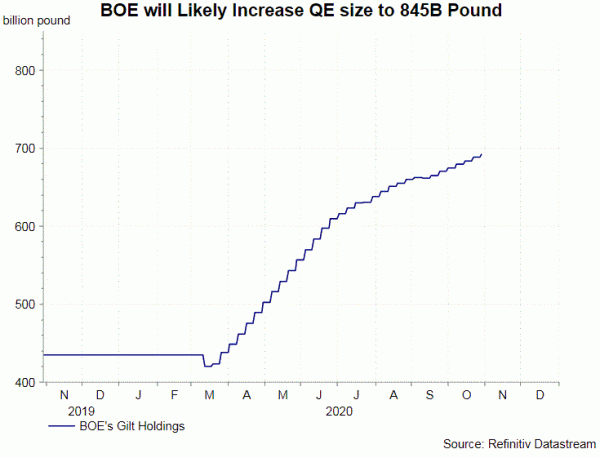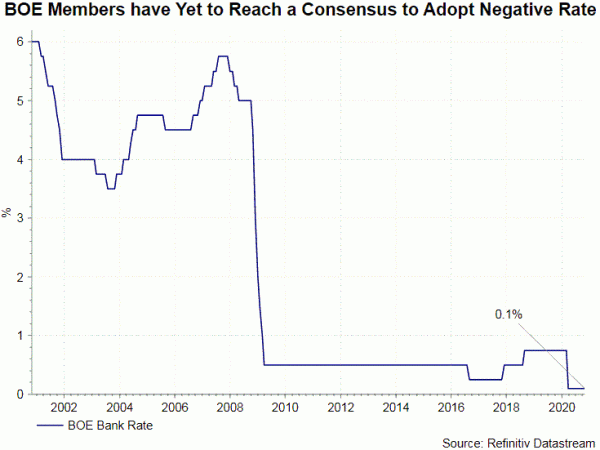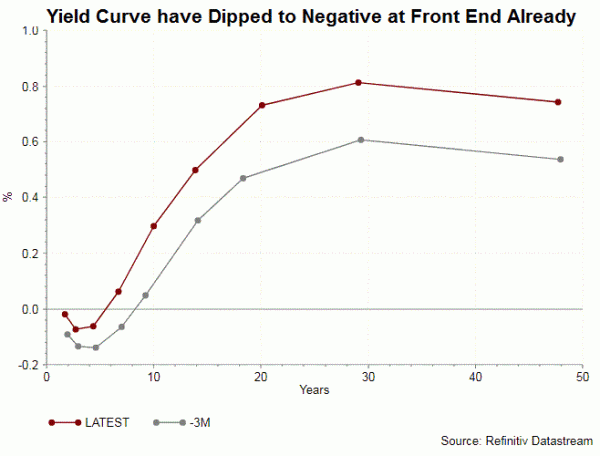At the meeting this week, we expect BOE to increase the size of asset purchases (QE), by 100B pound, to 845B pound. The Bank rate will stay unchanged at 0.1%. Economic data released since the last meeting suggest that the members’ forecasts in August were too optimistic. A downgrade on GDP growth estimate and caution of downside risks are likely. We also expect policymakers to reveal more about the impacts of Brexit on UK’s economy as the transition period is approaching the end (December 31, 2020).
Economic Developments since the Previous Meeting
On the job market, the unemployment rate increased +0.3 pp to 4.5% in the 3 months through to August, higher than consensus of +4.3%. The number of payrolls contracted -153K, worsening from -12K decline previously. Meanwhile, the total actual weekly hours worked dived -15% y/y to 891M hours during the period, suggesting the slack capacity had remained abundant. Headline CPI improved slightly to +0.5% y/y in September from +0.2% a month ago. Core CPI also recovered to+1.3% y/y, from +0.9% in August. Subdued inflation has offered flexibility for the central bank to act more.
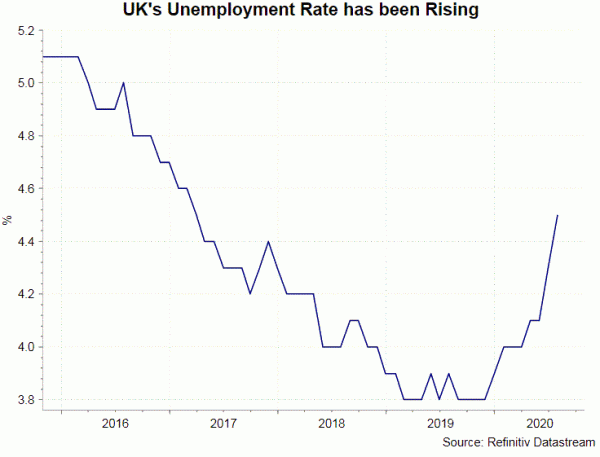
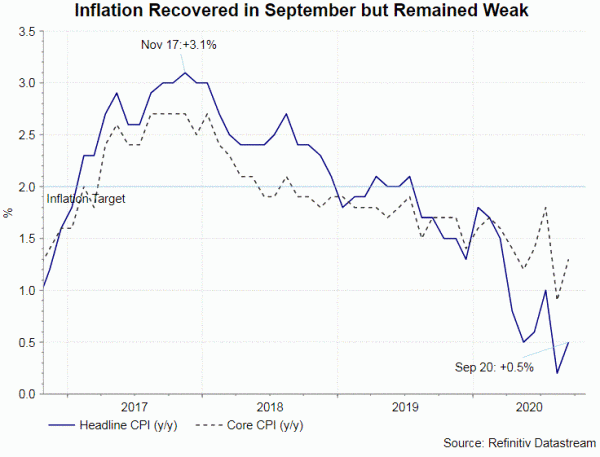
GDP contracted -9.3% y/y in August, better than -11.7% decline in July but worse than consensus of -7.5%. From a month ago, the economy expanded +2.1%. This was disappointing as growth came weaker than July’s +6.4% and consensus of +4.6%, despite the good weather, loosening restrictive measures and the “Eat out to Help Out” scheme. BOE’s staff in September had projected GDP growth for 3Q20 to rebound sharply to +19.5% q/q, up from just under +18% q/q in August. Yet, the disappointing August data signals that the estimate is too optimistic. Governor Andrew Bailey has over the past weeks reiterated that the economy in the third quarter will likely be -10% below its level at the end of 2019. This translates to a growth of about +15% in the quarter. As such we expect downward revision in 3Q20 growth at the November meeting. Besides, the economy in 4Q20 will also be downgraded as the UK has just entered a 4-week lockdown in light of soaring coronavirus cases.
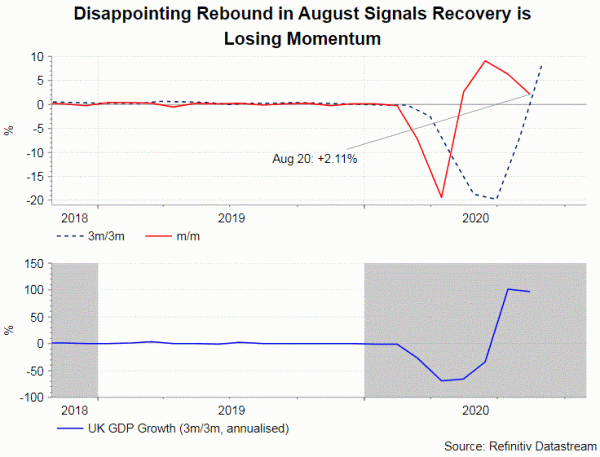
More Stimulus to Come
On the monetary policy outlook, it appears that the consensus is an expansion of asset purchases. Governor Bailey hailed the role of QE “in a world of very low equilibrium policy rates”. While suggesting “QE will remain part of our toolkit for time to come”, he added that carrying on with QE at a pace similar to that in March, it could “pose questions about the BOE’s balance sheet”. Deputy Governor Dave Ramsden, however, noted on October 21 that the central bank still has “considerable headroom” to expand QE “after the current program is completed”. External member Jan Vlieghe echoed that further stimulus is likely as “the downside risks to the economic outlook are starting to materialize”.
Policymakers were less unified regarding taking interest rates to negative. Bailey admitted that negative rates are in the toolbox. Yet, he added that the committee has not addressed the question of whether they should be used. By contrast, MPC members Silvana Tenreyro and Jan Vlieghe are in favor of such policy. The latter has recently suggested that “the risk that negative rates end up being counterproductive to the aims of monetary policy is low”. We would look for more discussions about the issue at the November meeting.
